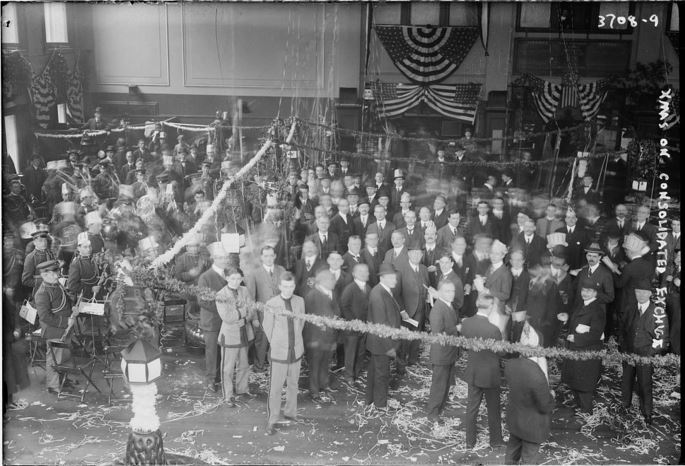This report is not a personal recommendation and does not take into account your personal circumstances or appetite for risk.
17 Dec
You’re welcome to, but I won’t be, because I like to not be thinking about that stuff while trying to digest a double helping of sprouts.
But for those of you considering it, bravo! Because Christmas is home to the Santa Rally – one example of a seasonal market phenomenon. Why do stock markets seem to fall off in August and September every year, to recover in the autumn (or ‘fall’ if you’re American, but that would just be confusing…)? Why have we historically seen stocks outperform in the final few weeks of the year – the so-called Santa Rally?
Picture the Christmas scene: There you are, in your smoking jacket and fully slippered in front of a roaring fire, eggnog in hand and faithful Rover at your feet. The perfect environment in which to make considered, measured and correct trading decisions. Ahhhhhhhhh!
 That is of course rubbish – while science probably doesn’t rule it out, eggnog is highly unlikely to make the stock markets go up. Those who invest in the stock market during Christmas and in the run-up to New Year do often see returns, but it’s because funds like to get rid of their poorly performing stocks, which no-one wants anyway, and keep a hold of their best performing ones so they look all successful to would be clients. Window dressing if you will. A lack of liquidity therefore appears to buoy share prices due to the particular demand / supply imbalance, which then of course helps the wider market, but it remains difficult to know in general what the individual reasons are for seasonal market movements.
That is of course rubbish – while science probably doesn’t rule it out, eggnog is highly unlikely to make the stock markets go up. Those who invest in the stock market during Christmas and in the run-up to New Year do often see returns, but it’s because funds like to get rid of their poorly performing stocks, which no-one wants anyway, and keep a hold of their best performing ones so they look all successful to would be clients. Window dressing if you will. A lack of liquidity therefore appears to buoy share prices due to the particular demand / supply imbalance, which then of course helps the wider market, but it remains difficult to know in general what the individual reasons are for seasonal market movements.
We know the main causes of volatility – unusually high or low trade volumes (whatever the reason for that) affecting liquidity – but volatility can move markets both up and down in a seemingly random manner. What’s more baffling is the consistency in direction of historic seasonal market moves. And it remains so. Be baffled by that by all means, but carry on!
Trading the markets, whenever you do it, is all about one-upmanship. That there are certain times of year – including during Christmas – that markets tend to move consistently in certain directions is something that can be exploited to get one up on the markets. A detailed understanding of the underlying processes and causes is not necessarily….necessary! There might not even be a well-defined driver, so why look for one? Is it not enough to simply know that something tends to work on a mere statistical or even anecdotal level?
I quote one of my heroes, Edmund Blackadder: “I am one of those people who are perfectly happy to wear cotton, but have no idea how it works…”
Augustin Eden
This research is produced by Accendo Markets Limited. Research produced and disseminated by Accendo Markets is classified as non-independent research, and is therefore a marketing communication. This investment research has not been prepared in accordance with legal requirements designed to promote its independence and it is not subject to the prohibition on dealing ahead of the dissemination of investment research. This research does not constitute a personal recommendation or offer to enter into a transaction or an investment, and is produced and distributed for information purposes only.
Accendo Markets considers opinions and information contained within the research to be valid when published, and gives no warranty as to the investments referred to in this material. The income from the investments referred to may go down as well as up, and investors may realise losses on investments. The past performance of a particular investment is not necessarily a guide to its future performance. Prepared by Michael van Dulken, Head of Research
Comments are closed.